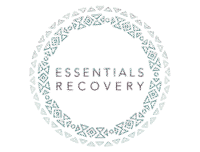Holistic treatment is an approach that considers the whole person—mind, body, and spirit—rather than focusing solely on the symptoms of addiction. This comprehensive perspective recognizes that substance use disorders affect every aspect of an individual’s life, and recovery must address all these dimensions to be truly effective. Holistic treatment integrates traditional therapies with complementary practices to promote healing, balance, and long-term wellness.
The Importance of Addressing the Whole Person
Addiction is rarely just a physical dependence on substances; it is often intertwined with emotional pain, mental health disorders, and spiritual disconnection. Treating only the physical symptoms ignores the underlying causes and leaves the door open for relapse. Holistic treatment seeks to uncover and heal the root issues by fostering self-awareness, emotional health, and a sense of purpose.
By treating the whole person, holistic approaches empower individuals to regain control over their lives and build a foundation for lasting recovery.
Mind: Mental and Emotional Healing
Mental and emotional health are critical components of holistic addiction treatment. Many individuals who struggle with addiction also experience co-occurring mental health disorders such as depression, anxiety, or trauma-related conditions. Effective treatment addresses both simultaneously.
Therapeutic modalities such as cognitive-behavioral therapy (CBT), dialectical behavior therapy (DBT), and trauma-informed care help individuals understand their thought patterns and emotional triggers. These therapies teach coping skills, emotional regulation, and strategies to prevent relapse.
Mindfulness practices, meditation, and stress reduction techniques complement traditional therapy by promoting present-moment awareness and emotional balance. Journaling and expressive arts therapy provide creative outlets for processing complex emotions and fostering self-expression.
Body: Physical Health and Wellness
Addiction takes a significant toll on the body, affecting nutrition, sleep, immune function, and overall physical well-being. Holistic treatment emphasizes restoring physical health as a foundation for recovery.
Regular physical activity is encouraged to improve mood, reduce anxiety, and increase energy. Exercise also supports detoxification and promotes better sleep patterns, which are often disrupted in addiction.
Nutrition plays a vital role in healing. Substance abuse often leads to vitamin deficiencies and poor dietary habits. Nutritional counseling and meal planning help repair damage and support brain function and emotional stability.
Complementary therapies like acupuncture, massage, and yoga can alleviate withdrawal symptoms, reduce stress, and enhance relaxation. These body-centered treatments help individuals reconnect with their physical selves in positive ways.
Spirit: Cultivating Purpose and Connection
Spiritual wellness is a deeply personal aspect of holistic treatment. It doesn’t necessarily mean religious practice but rather involves finding meaning, purpose, and connection beyond oneself.
Many individuals in recovery report a sense of emptiness or disconnection that contributed to their substance use. Holistic treatment encourages exploration of personal values, beliefs, and spiritual practices that foster hope and inner peace.
Meditation, prayer, nature immersion, and involvement in community service are common ways to nurture spiritual health. Support groups and peer connections also provide a sense of belonging and shared purpose.
Cultivating spirituality helps individuals build resilience, find motivation to stay sober, and experience a renewed sense of identity.
Integrating Mind, Body, and Spirit in Treatment Plans
Holistic treatment plans are personalized to meet each individual’s unique needs and preferences. A combination of therapies and practices are woven together to create a balanced approach.
For example, a program might combine individual counseling with yoga classes and spiritual coaching. Nutrition education might be paired with group therapy and mindfulness sessions.
This integration promotes harmony between mental, physical, and spiritual health, leading to comprehensive healing rather than isolated symptom management.
Benefits of Holistic Treatment
Holistic treatment offers several advantages over traditional models:
- Reduced relapse rates by addressing root causes
- Improved overall well-being in multiple life domains
- Greater self-awareness and emotional intelligence
- Enhanced coping skills for stress and cravings
- Increased motivation and sense of purpose
- Support for co-occurring mental health disorders
- Fostering of healthy lifestyle habits
Patients often report feeling more empowered and engaged in their recovery when treatment honors their whole self.
Examples of Holistic Therapies
Here are some of the common therapies and practices used in holistic addiction treatment:
- Mindfulness and Meditation: Cultivates awareness and reduces reactivity
- Yoga and Tai Chi: Combines physical movement with breath control and meditation
- Acupuncture: Helps alleviate cravings, anxiety, and pain
- Massage Therapy: Relieves tension and promotes relaxation
- Nutritional Counseling: Supports physical recovery and brain health
- Art and Music Therapy: Provides creative expression and emotional processing
- Spiritual Counseling: Explores personal beliefs and meaning
Many treatment centers offer these complementary therapies alongside traditional medical and psychological care.
Overcoming Challenges in Holistic Treatment
While holistic treatment has many benefits, it may also present challenges. Some individuals might initially be skeptical of alternative therapies or struggle to integrate multiple approaches.
It’s important to maintain open communication with healthcare providers and adapt the plan as needed. Progress may be gradual, and patience is essential.
Accessibility and insurance coverage can also affect availability. Advocating for comprehensive care and seeking programs that prioritize holistic approaches can help overcome these barriers.
Holistic Treatment in Aftercare
The journey of recovery extends beyond initial treatment. Holistic approaches are valuable in aftercare to support ongoing wellness.
Continuing mindfulness practice, maintaining physical fitness, and engaging in spiritual activities can help prevent relapse. Support groups that embrace holistic principles offer community and reinforcement.
Aftercare plans that include holistic elements encourage individuals to continue nurturing their mind, body, and spirit throughout their lives.
Conclusion: Embracing Whole-Person Healing
Holistic treatment recognizes that addiction recovery is about restoring balance to every part of a person’s life. Integrating mind, body, and spirit creates a comprehensive path toward healing that honors the complexity of substance use disorders.
By embracing this approach, individuals can find deeper healing, enhanced resilience, and a renewed sense of purpose. Holistic treatment invites people to reconnect with themselves and the world in meaningful ways, laying the groundwork for lasting sobriety and well-being.
Recovery is not just about quitting substances—it’s about reclaiming life. Holistic treatment offers the tools and support needed to make that transformation possible. Call us today at 855-509-1697.



